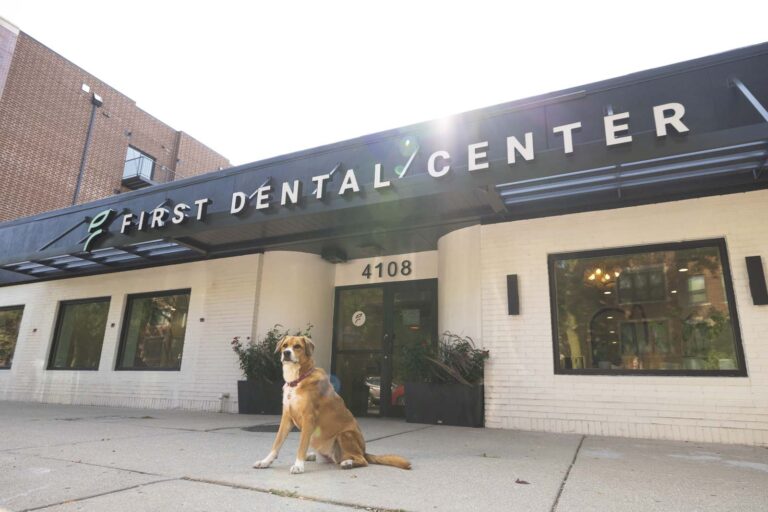Common signs include loud snoring, waking up with a dry mouth, morning headaches, and excessive daytime sleepiness. A sleep study can confirm the diagnosis.
Sleep Apnea
Sleep apnea is a serious sleep disorder that occurs when a person's breathing is interrupted during sleep. At First Dental Center, we offer effective treatment options to help manage this condition, improve your sleep quality, and enhance your overall health.
-
Cost
The cost of sleep apnea treatment can vary depending on the type of treatment prescribed. We provide a detailed cost breakdown during your consultation and assist with insurance claims.
Office Fees -
Procedure Duration
Treatment duration varies based on the type of intervention. Oral appliances and CPAP setup typically require a few appointments, while lifestyle adjustments are ongoing.
Schedule Online -
Comfort Measures
We want you to feel completely at ease during your visit, so we use gentle techniques and create a soothing atmosphere to make your experience as comfortable as possible.
Call First Dental Center
Breathe Easier and Sleep Better with Our Effective Sleep Apnea Solutions
Sleep apnea involves repeated pauses in breathing throughout the night. These pauses, called apneas, can occur dozens or even hundreds of times per night. The most common type is obstructive sleep apnea, where the airway becomes blocked or collapses during sleep.
Types of Treatments Offered:
– CPAP Therapy: The most common treatment involves a machine that uses mild air pressure to keep the airways open.
– Oral Appliance Therapy: We offer custom-fitted dental devices that adjust the position of your jaw and tongue to keep the airway open.
– Lifestyle Changes: Recommendations for weight management, position therapy, and avoiding alcohol before bedtime.
01.
Process of Sleep Apnea Treatment
Initial Consultation: Comprehensive evaluation including a review of your medical history, symptoms, and a physical examination.
Sleep Study: We may recommend a sleep study to diagnose the severity and type of sleep apnea.
Treatment Plan: Based on the findings, we’ll discuss the most suitable treatment options and develop a personalized treatment plan.
Follow-Up Care: Regular follow-up appointments to assess the effectiveness of the treatment and make necessary adjustments.
FAQ
-
How do I know if I have sleep apnea?
-
Is sleep apnea treatment covered by insurance?
Many insurance plans cover sleep apnea treatment. Our staff can help you understand your coverage.
-
Can dental devices be as effective as CPAP machines?
For mild to moderate sleep apnea, dental devices can be very effective. They are also easier to use and maintain, making them a popular alternative to CPAP for some patients.
-
What causes sleep-disordered breathing?
Snoring and sleep apnea occur when the soft tissue structures of the upper airway collapse, resulting in a narrowed airway opening. The snoring sound is caused by the vibration of these tissues. Complete closure of the airway is an “apnea event,” which means that no air is getting into the lungs. The causal factors may be:
• Structural – narrow jaw, large tongue, enlarged tonsils, enlarged adenoids, thick soft palate, small nasal valve, or deviated septum
• Other factors – allergies, overconsumption of alcohol, sedatives,
smoking, and disruption of normal sleep patterns, or decreased lung capacity (often caused by obesity) -
What problems can sleep-disordered breathing cause?
• Poor performance at work or school
• Forgetfulness
• Irritability
• Depression/Anxiety
• Workplace or auto accidents
• High blood pressure
• Diabetes
• Stroke
• Heart failure and heart attack

